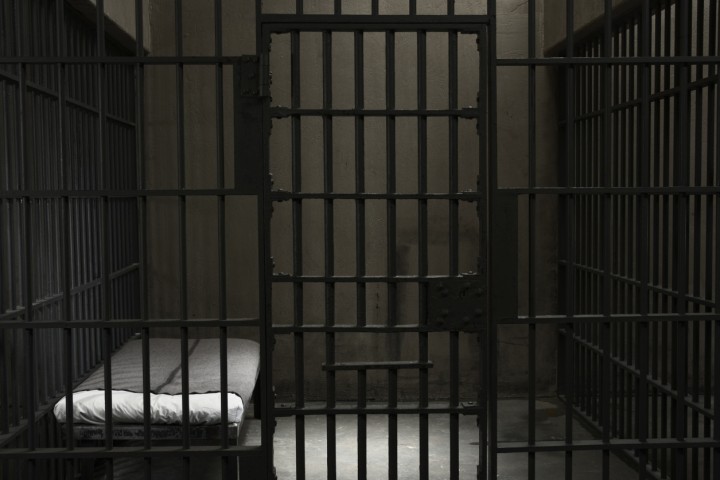OTTAWA – Canada’s prison watchdog wants the Conservative government to commit to moving severely mentally-ill inmates out of prisons and into secure psychiatric hospitals run by the provinces and territories.

Correctional Investigator Howard Sapers says a handful of inmates are too sick for the federal prison system to handle and the government should contract out services from hospitals.
“The Correctional Service of Canada cannot, and I don’t believe they should, replicate the mental health care system,” Sapers said in an interview.
“This handful of offenders do need security. Some of them act out violently. Many of them don’t, but some of them do. But mostly what they need is health-focused intervention,” he said.
“These people are ill.”
Sapers pointed to the surge of inmates harming themselves in federal penitentiaries as one of the biggest problems, with incidents almost tripling in the last five years.
But a representative for the prison guards’ union says he’s not convinced moving inmates to provincial facilities will change the outcome.
“What’s the difference? What are they doing in provincial places that we’re not doing federally?” said Kevin Grabowsky, national president of the Union of Canadian Correctional Officers.
“It’s a frustration…What are we not providing? Can somebody tell us what we’re not providing federally that they’re providing in whatever magical place that Mr. Sapers says these inmates could go to and get better care? Is it just the fact that it’s called a hospital? That’s not reason enough.”
- Winnipeg man admits to killing 4 women but says he’s not criminally responsible
- Hardeep Singh Nijjar homicide suspects in B.C. ahead of next court appearance
- Man given fine and pet prohibition for Calgary dog attack that killed senior
- Homemade bombs found under machinery at Quebec construction site: company
Grabowsky said there are five Regional Treatment Centres that offer acute and chronic mental health care, as well as a Regional Psychiatric Centre, for inmates who need help.
“Some of the provincial places, we have sent inmates to, and they send them back going, ‘They’re too damn violent. We can’t handle them.’”
In a December 2012 letter to former public safety minister Vic Toews, obtained through access to information, Sapers points to six “case summaries” that he says supports his claim that some offenders cannot be properly managed and cared for in federal penitentiaries.
Only three cases were released to Global News.
One involves the country’s first-ever padded cell built for a female inmate, who injures herself by chronically banging her head.
While personal details about the inmate are omitted, the document says CSC continues to use restraints and a protective helmet for the inmate.
“Despite these efforts, the current approach has not shown any significant progress,” the document says.
“The regime of keeping…in near constant restraints is unsafe, ineffective and inhumane. (The inmate) does not belong in a federal penitentiary and should be transferred to an external forensic facility as soon as possible.”
The other two case summaries involve male inmates who were placed at the now-defunct Complex Needs Program, a unit dedicated to those who self-injure. The three-year-old pilot program closed on March 31.
The letter says that in an internal investigation, the program was described as “cramped and inadequate” and “a harsh environment, resembling a segregation unit.”
“It is also understood that the CSC cannot always prevent inmates from self-injury,” it says.
Sapers also compared the six cases to deceased inmate Ashley Smith, who died after she strangled herself in prison in 2007. An inquest into her death is underway in Ontario and resumes in the fall.
“Like Ashley, these offenders have mental health care needs well beyond the resources or capacity of the Service to safely manage,” Sapers said.
While he said CSC does send some inmates to psychiatric hospitals such as the Philippe Pinel Institute in Montreal and the Alberta Hospital in Edmonton, the system is not consistent and “very imperfect right now.”
A spokeswoman for the CSC said the prison service “continually engages” community mental health facilities to expand and diversify mental health services.
“We are exploring partnerships that will ensure necessary care is provided for those with acute mental illness in other facilities without requiring long-term commitment or new construction,” said spokeswoman Sara Parkes.
Parkes did not explain what the service meant by “long-term commitment.”
Sapers says he is aware that serious discussions are underway – but they can drag on for years.
“This is not a new issue for the Correctional Service of Canada but it is getting to be a critical issue,” he said.
Public Safety Minister Steven Blaney was not available for an interview. His spokeswoman said the government continues to take concrete steps on the issue of mental health in prisons.
“Our government takes the issue of mental health in prison very seriously. That’s why we have taken action to improve access to mental health treatment and training for corrections staff in prisons,” Julie Carmichael said in an email.
Liberal MP Francis Scarpaleggia said CSC should move on alternative treatment for mentally ill offenders. NDP public safety critic Randall Garrison said first, the government must determine whether CSC’s current strategies are working and the minister should ask for a report on the CSC’s own mental health directives.



Comments